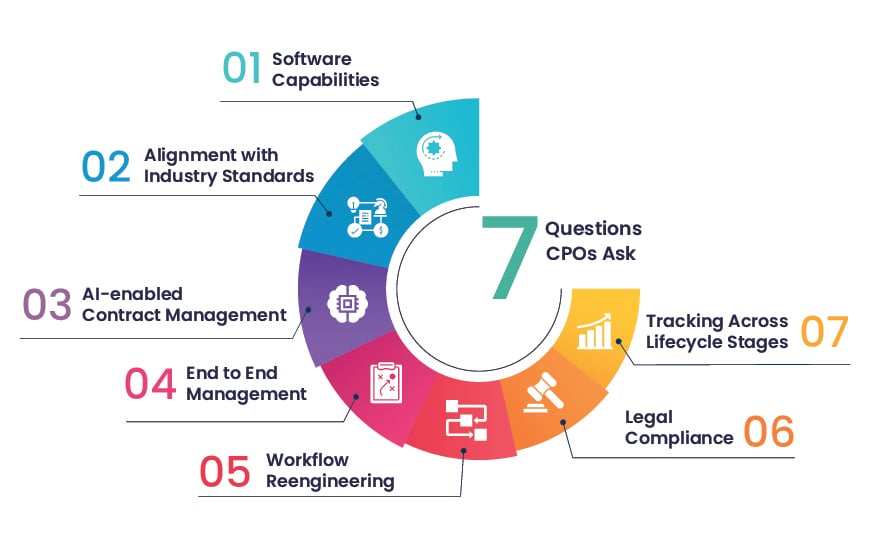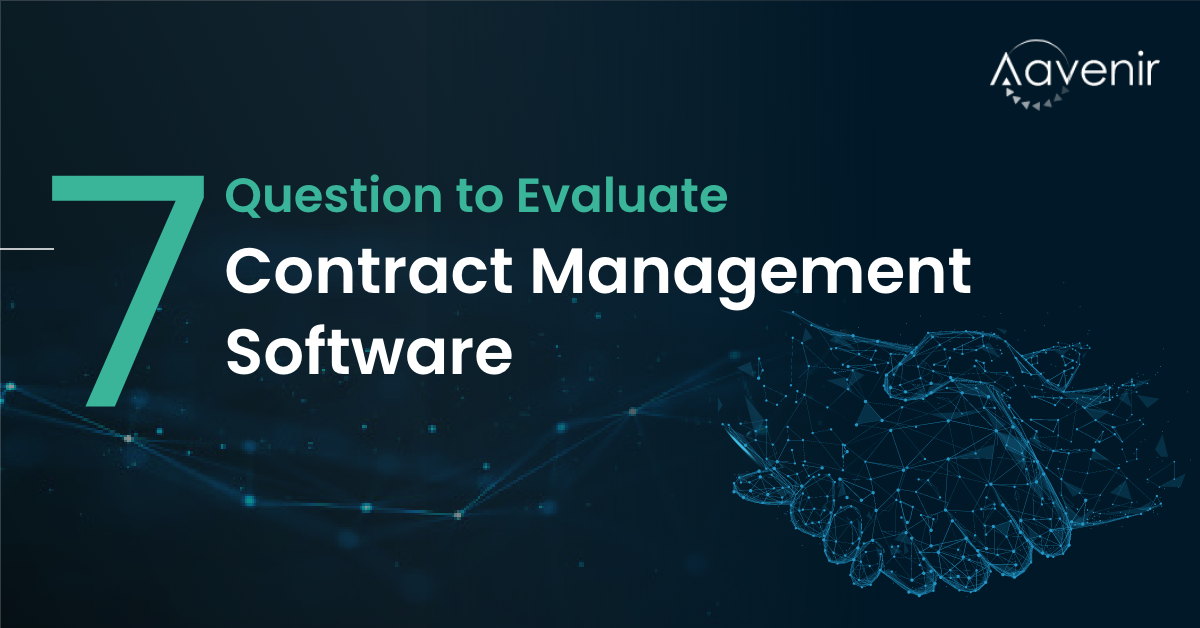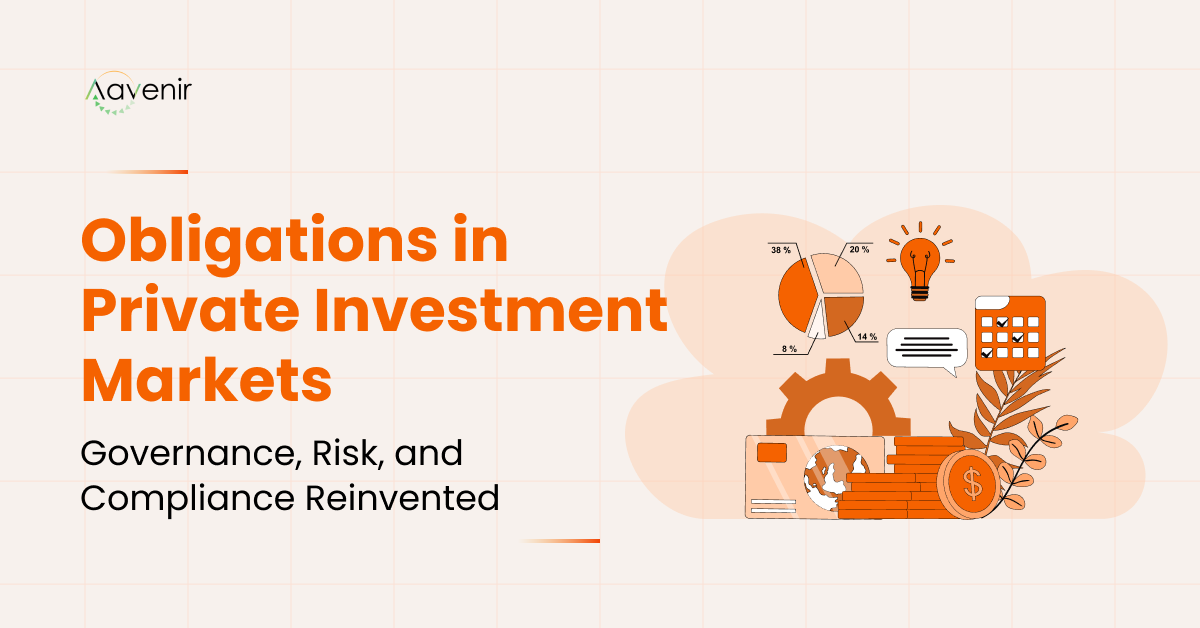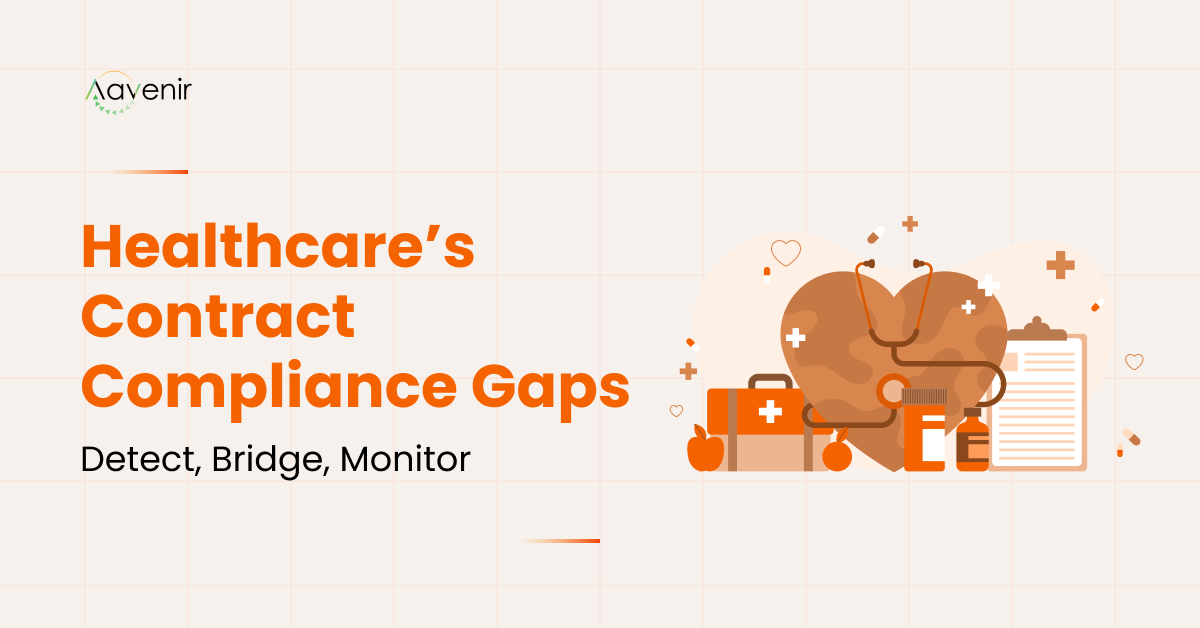Chief Procurement Officers (CPOs) have umpteen tasks to carry out beyond the second word in their official title. The dynamic nature and process of procurement business demand leaders in any capacity to understand and make decisions regarding various matters. Fortunately, there are business solutions available that can make the life of a CPO a lot less stressful. Yes, contract management software (CLM Software) can help CPOs sleep a bit better at night. However, before investing in any contract management software, every CPO needs to get a thorough understanding and clarity on important aspects.
Starting with which contracts are they going to manage? Are they specific to a business function like procurement or sourcing? Let’s explore the top 7 questions to evaluate before finalizing a contract lifecycle management solution:

1. Does the software have the required capabilities to manage Procurement Contracts?
Procurement contract management is the process of managing, executing, and managing contracts from requests to renewals, in a hassle-free and efficient manner. It comprises:
- Negotiating the terms and conditions in contracts
- Certifying compliance with the terms and conditions
- Documenting, negotiating and approving on any revisions by both parties.
2. How is the Contract Lifecycle going to align with Procurement Industry Standards?
Every contract, including procurement contracts, has a lifecycle: It is drafted, it is utilized, and it expires at the end of validity. In layman terms, contract lifecycle means the entire period for which a contract is valid. For example, if a software subscription agreement runs for 5 years when this date arrives and the contract is no longer in effect, the contract’s lifecycle has come to an end.
Contract management systems use triggers, alerts, and updates to help users manage obligations and renewals. Sounds simple? It’s not! As your business progresses, it becomes increasingly complex to manage contracts at various stages of their lives. The key is efficient contract management across stages. Poorly managed contract mechanisms can result in exposure to significant legal risk: 80% of B2B revenue is delivered by contracts. That’s where trusted CLM solutions, like ContractFlow, come into play for efficient source-to-pay solutions.
3. Does AI really help in contract management?
Why not? AI delivers a variety of capabilities helping optimize an organization’s key source-to-contract requirements with user-friendly and flexible contract management software. Contract managers can have the ability to create smart contracts, re-use the contract library, simplify the contract formats and implement the required contract management best practices that offers:
- Integrating with Microsoft Word
- Unlimited and secure file storage
- Contract Lifecycle Automation
- Compliant and Intelligent Workflows
- Enhanced Search and Tracking Tools
- User-Friendly eSignatures
4. What all Procurement Processes are managed through CLM software?
With CLM software, procurement professionals can reduce risk, standardize and regulate their organization’s buying process, and maximize the value of their procuring opportunities with eProcurement features including:
- End-to-end procurement management
- Identifying spending behavior and tracking, vendor evaluation
- Manage supplier ratings, scorecards, and more
5. Can Contract Management Solution Reengineer Workflows?
Contract management software for procurement helps organizations of all sizes to create, store, track, and manage contracts throughout the entire contract lifecycle. Over and above, users can draft contracts and documents from templates, define terms and conditions, assign tasks and permissions, and track critical milestones. If we take the example of ContractFlow built on ServiceNow, using AI, it re-engineers workflows to meet the needs of the market, increase economies of scale and ensure resilience.
6. Does Contract Management Software replace a Legal Department?
A contract management system does allow numerous self-service options, but the straightforward answer to this question is NO. This is because the procurement process still involves your legal team to review the compliance of language and terms used in the contract with laws and regulations. However, a contract management system simply streamlines the process, allows your sales team to be faster and more efficient, speeds up the documentation process by as much as 75 percent, and frees up your legal team to deal with issues in another crisis that requires knowledge. If we talk about Aavenir ContractFlow built on ServiceNow, it allows you full transparency into your overall contract care, at the same time enhancing your teams’ morale and productivity.
7. Can I keep track of Tasks, Documents as per Compliance?
Contract management software offers a secure contract and document repository system that optimizes and secures the protection, organization, location, and sharing of contracts. It centralizes document version control which makes it easy to keep track. Both pre and post-award tracking of requests, purchase orders, invoices, supporting documents, etc. is possible. Furthermore, it reduces vendor/customer compliance bottlenecks by allowing configuration of user permissions regarding document management and version access, as well as approval routing and audit trails.
What’s next? Supercharge Workflows and Digitize your Procurement Process with ease
Maintaining an efficient procurement contract management process not only gets tasks done more swiftly but also provides a bunch of other benefits, including:
- Ability to see internal procedures and patterns that might put you in jeopardy
- Ability to rapidly and effectively comply with new and evolving regulations
With an apt contract management system, one can ensure the right clauses and schedules to manage organizations’ risk for creating RFI’s, RFP’s, RFQ’s, RFT’s, or other agreements. Create secured, scalable, and compliant tender documents in a fraction of the time and track progress all the way. What else any procurement business needs to survive and thrive? Get started with AI-enabled workflows and digitize your end-to-end procurement processes.





